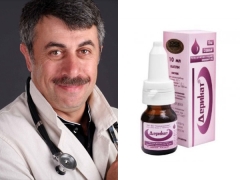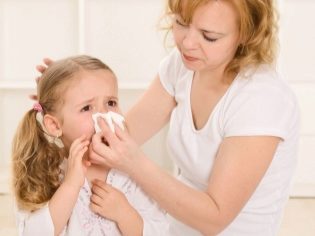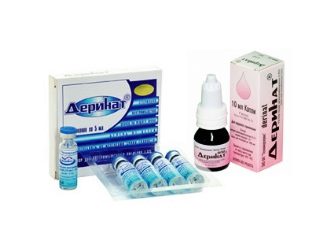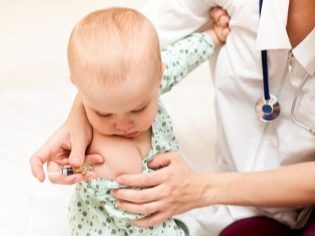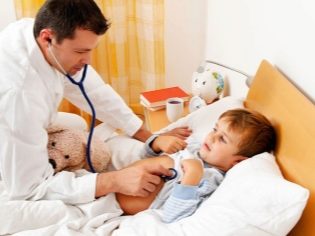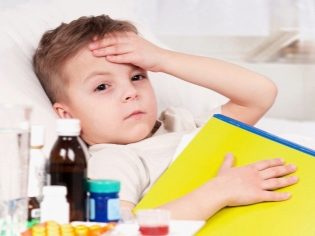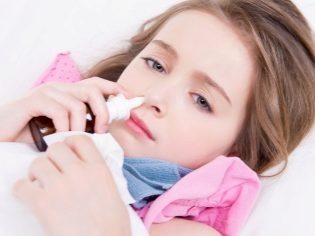Dr. Komarovsky about Derinat for children
Viral infections most often appear in the cold season, so as the autumn cold weather approaches, many parents begin to think about preventive measures for SARS for themselves and their children. The easiest way seems to be taking medications that can strengthen the immune system, one of which is Derinat. What does Komarovsky think about such prevention and does this drug recommend for children?
Action and testimony
Due to the effect on the human immune system Derinat is referred to as immunomodulatory drugs. The active substance of this drug is deoxyribonucleinate. This compound activates the body's defenses, affecting both the humoral immunity and the cells of the immune system. As indicated in the abstract, the result will be a faster recovery from an infectious disease, and if you give the drug prophylactically, children are less sick and less likely to become infected with SARS.
More information about antiviral agents will tell Dr. Komarovsky in the video below.
Most often, the drug is used in the fight against influenza and for its prevention. It also helps to avoid infection or cure other acute respiratory viral infections, some bacterial and fungal infections faster. The drug can be applied topically, because it has the ability to accelerate the healing of the mucous membrane and skin. For this reason, Derinat is advised to handle aphta in the mouth, throat at angina, burns and long-term healing wounds on the skin, eye mucosa with its defeat.
Derinat is produced in liquid form, but it is represented by several packaging options. Children of the first years of life (and the drug can be used even in newborns) are usually prescribed nasal drops, which can also be used for local treatment (for example, drip into the eyes) and for inhalation. From the age of three you can use sprayespecially if the child has a sore throat or a runny nose.
Opinion Komarovsky
The popular doctor does not prescribe Derinat and other drugs that can affect the immune system to their young patients with ARVI or to prevent flu and does not advise parents to buy such medicines and give them to their daughter or son. Komarovsky believes that no immunomodulators can cope with viral infections or prevent infection. In his opinion, the following preventive measures are more important for protecting a child from influenza and ARVI:
- Give your child a flu shot before the epidemic season begins.
- During the epidemic season, less contact with other people, and if someone is ill in the child’s environment, then isolate the sick person.
- Wear a mask to a sick person to limit the spread of the virus.
- Wash your hands often and use wet wipes, and not touch your face or sneeze in your palm.
- Often walk on the street and air the apartment.
- Maintain an indoor temperature of about +20 degrees and a humidity in the range of 50-70%.
- Do not allow the drying of mucous membranes, so as not to violate local immunity.
If the child does become infected with a flu or other viral infection, Komarovsky recommends that you proceed as follows:
- Heat the child, but reduce the temperature in the room (up to 16-20 degrees) and try to humidify the air.
- Do not force the baby to eat if the child refuses to eat. Offer liquid, carbohydrate, light food.
- Drink a lot and often offer to drink, warmed to body temperature.
- Treat the nasal mucosa with saline solutions (instill or inject saline and preparations based on seawater).
- At high temperatures give paracetamol or ibuprofen in the age dose.
- Do not give the child their own antiviral, antibacterial, antiallergic and expectorant drugs.
- If within 3 days from the onset of the disease there is no improvement or the child’s condition has worsened, call a doctor immediately.
